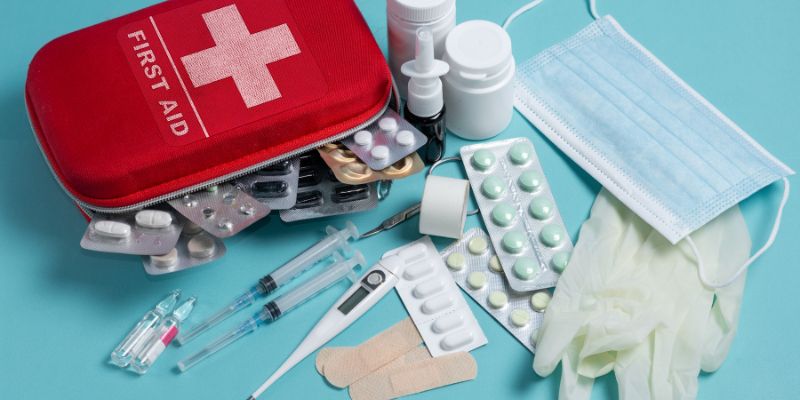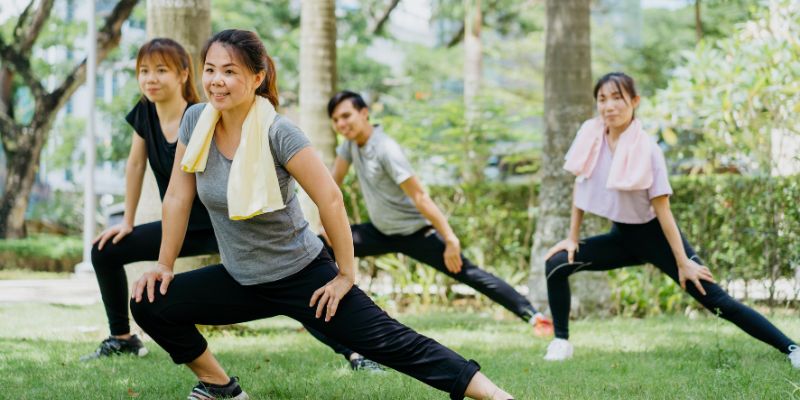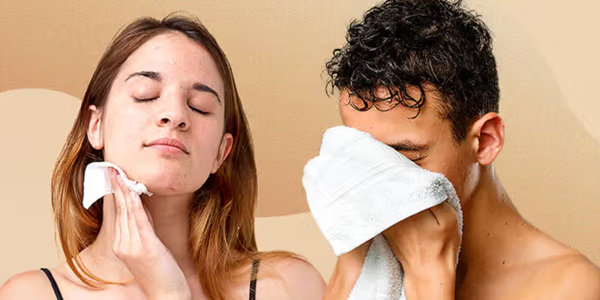Did you plan a dream vacation, only to fall ill once you arrived? Stomach issues, fatigue, and viruses can quickly ruin your trip. Travel exposes you to new environments, foods, and conditions that increase your risk of sickness. The proper precautions can keep you healthy and ensure a great vacation!
Did you plan a dream vacation, only to fall ill once you arrived? Stomach issues, fatigue, and viruses can quickly ruin your trip. Travel exposes you to new environments, foods, and conditions that increase your risk of sickness. The proper precautions can keep you healthy and ensure a great vacation!
Strengthen Your Immune System Before You Go
The primary way your body fights illnesses depends on a healthy immune system. Travelling begins with the necessary preparation for climate change, food selection, and adjustments to your daily routine. A nutritious diet of fruits, vegetables, and lean proteins is key to supporting the immune system.
Proper hydration, rest, and regular exercise can help your body protect itself against infections. Some travellers take supplements like vitamins and probiotics a few weeks before travel to strengthen their gut health, which allows their digestive system to adapt to different foods. Planning your body ahead of travel time will determine how effectively you manage Stress during your trip.
Stay Hydrated And Be Cautious With Water
Human bodies experience fatigue and headaches because of dehydration. It also weakens the immune system, which creates higher chances of illness. Regular water intake is usually interrupted by long flights and hot weather conditions. Water intake during your journey will fuel your bodily systems to work correctly.
Most areas lack safe drinking water from their tap supplies. Select bottled or filtered water for healthy water intake, but stay cautious when using ice cubes because they can be made from tap water. A water purification bottle or tablet is an excellent means of ensuring drinking water's safety if you are unsure about its quality.
Be Careful About What You Eat
Food poisoning is prevalent among travellers who delight in tasting new local dishes when exploring foreign countries. Busy restaurants that frequently replace food items reduce the chances of spoiled food due to continuous fresh meal preparation.
Street foods remain tempting, though you should consume items only from vendors who prepare their meals in your presence while serving steaming-hot dishes. Stay away from unpeeled and raw fruits and vegetables in locations where hygiene standards prevent digestive problems from occurring. Using hand sanitizer or washing your hands before eating provides an easy method for maintaining your health.

Get Enough Sleep And Manage Jet Lag
Crossing multiple time zones while travelling creates sleep cycle disturbances that exhaust your body and leave you more prone to contracting diseases. Lack of proper sleep weakens immunity, enabling colds and flu to penetrate your body more easily. The transition to your new sleep pattern can be smoother if you adjust it gradually a few days before departure.
Wearing an eye mask and earplugs and skipping Caffeine consumption at night will lead to better sleep and rest. The sleep hormone melatonin is a valuable tool for resetting the internal body clock. Rest will give you the energy to explore your destination without exhaustion.
Practice Good Hygiene And Keep Your Hands Clean
Highly populated places, including airports, public transportation, and tourist attractions, contain many germs on every corner. Regularly washing hands with soap remains the simplest way to prevent getting sick. Hand sanitizer containing 60% alcohol effectively destroys germs when soap and water are unavailable.
You should avoid contact with your face after handling public surface items like door handles, elevator buttons, and ATMs. These objects often contain many bacteria and viruses. Promoting hygiene decreases the risk of illnesses such as colds, stomach bugs, and other infections.
Be Active And Avoid Long Periods Of Sitting
Travelling by air, bus, or train spends many hours sitting in one place, causing stiffness and poor circulation. Active movement maintains your body's health and stops the formation of blood clots, which are common during long plane journeys. But don't worry; your blood circulation improves when you walk during stopovers.
Stretching and performing simple exercises in your hotel room will help prevent fatigue. While travelling, consistently engage in physical activities like riding a bicycle, swimming in the pool, or hiking to maintain a healthy energy balance and avoid the harmful effects of extended sitting.

Protect Yourself From Insect Bites
In tropical areas, travellers are mainly prone to dengue, malaria, and Zika. These diseases are spread by mosquitoes, causing serious health issues. Proper insect bite prevention strategies protect people from developing severe health complications.
People should wear long-sleeved clothing and pants when entering high-risk mosquito areas while using DEET-based or natural alternatives for insect repellents. Using mosquito nets during sleep provides additional defence against mosquito-borne health threats in areas where these diseases are common. Insect bites might seem insignificant initially, but severe health issues could develop from them, so it is vital to take protective steps.
Be Mindful Of Germs On Airplanes And In Hotels
Germs are everywhere in aeroplanes, hotels, and high-touch points such as seat belts, tray tables, and remote controls, which serve as bacteria hotspots. Regularly cleaning high-touch areas with disinfecting wipes decreases your contact with germs.
Refraining from touching aeroplane seat pockets and bathroom door handles can reduce virus exposure. Selecting the window seat on aeroplanes minimizes the risk of spreading airborne illness because it minimizes face-to-face interactions. Basic hygiene practices are effective for blocking the transmission of sickness during travel.
Listen To Your Body And Take Breaks
Scheduling so many activities back-to-back in your travel schedule will create mental and physical Stress. The purpose of travel should be enjoyment rather than a competition to see every tourist destination. Your schedule should include breaks, proper pacing, and rest periods to prevent burnout and sickness. To manage effectively, take notice of early health symptoms and let your body rest from the start. Pay attention to what your body tells you and react to any early indications of fatigue to maintain your general health when travelling.
Carry a Travel Health Kit
Having basic medicines for health problems reduces unpleasant experiences during a trip. Including basic first-aid supplies and essential items like painkillers, electrolyte packets, and anti-diarrheal medication, as well as basic first-aid supplies, will enable you to tackle common health problems when travelling. Travel safely with the medications you have prescribed from your doctor. Count and recheck the medicines for the planned days, and take a medical prescription. If you need more medicine, this prescription will help you. Hence, keeping basic medications with you while travelling is essential.
Final Thoughts
Travelling is about exploring and enjoying new places and making memories with them rather than falling sick. It must include simple measures like hydration, proper food, hygiene, and rest. It can help you minimize the risks of falling ill while travelling. To maintain your health during travel, you should prepare in advance and listen to your bodily signals to achieve the most from your trip. The right approach to prevention, combined with a healthy routine, enables people to experience secure and worry-free memorable trips regardless of destination. Plan your trip, but don't forget that health comes first!
- Share this article:
-
![Best Skincare Routine For Oily Skin: Say Goodbye To Shine!]() Beauty
Beauty - Best Skincare Routine For Oily Skin: Say Goodbye To Shine!Is your face oily shortly after washing, with makeup disappearing by noon? Oily skin can block pores, cause acne, and leave an unwanted shine. But don't worry! You can manage oiliness and maintain fresh, clear skin all day with the proper skincare routine. Let's find the best approach for you!
-
![How To Make Your Foundation Last All Day – No Touch-Ups Needed!]() Beauty
Beauty - How To Make Your Foundation Last All Day – No Touch-Ups Needed!Does your foundation melt by midday? If you struggle with oily skin, humidity, or lack of touch-ups, it's time to try the right products and techniques. These expert tips will help keep your foundation smooth and lasting all day, regardless of skin type.








